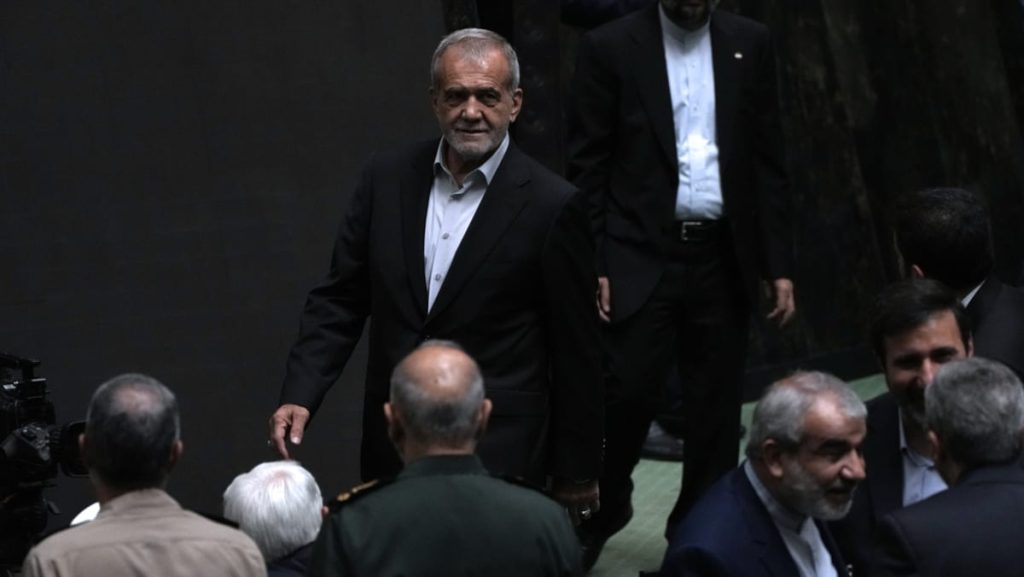Iran has accused the United States of supporting Israeli crimes in Gaza, stating that those who supply weapons that kill children cannot teach Muslims about humanity. The statement was made by Iranian lawmaker Pezeshkian during a ceremony attended by leaders of Iran’s Palestinian allies Hamas and the Islamic Jihad, as well as representatives from Yemen’s Houthi movement and Lebanon’s Hezbollah. Pezeshkian, who is set to name his cabinet within two weeks, has replaced hardliner Ebrahim Raisi, who died in a helicopter crash in May. As the Supreme Leader of Iran, Ayatollah Ali Khamenei has the final say in all state matters, including foreign and nuclear policy, and must approve Pezeshkian’s selections for key cabinet posts.
The groups supported by Iran, known as the “Axis of Resistance,” oppose Israeli and U.S. influence in the Middle East. They have clashed with Israel in Gaza, with Iran accusing the U.S. of aiding Israeli actions in the region. This tension has escalated following the death of Ebrahim Raisi and the appointment of Pezeshkian as Iran’s new leader. The attendance of leaders from Iran’s allies at Pezeshkian’s inauguration ceremony signals continued support for Iran’s stance against Israel and the U.S.
Pezeshkian’s upcoming cabinet appointments, including key positions such as the foreign, oil, and intelligence ministers, will need to be approved by Ayatollah Khamenei, showcasing the Supreme Leader’s influence over Iran’s government. Khamenei plays a vital role in shaping Iran’s foreign policy and nuclear decisions, making him a key figure in Iran’s relations with other countries. The selection of cabinet members will have implications for Iran’s stance on regional conflicts and its interactions with the international community.
The accusations made by Iran regarding U.S. support for Israeli actions in Gaza have further strained relations between the two countries. The ongoing conflict in the region has led to increased tensions, with Iran and its allies continuing to resist what they see as Israeli and American interference in the Middle East. Iran’s alignment with groups like Hamas, the Islamic Jihad, and Hezbollah underscores its commitment to challenging the influence of Israel and the U.S. in the region.
The presence of Palestinian and Yemeni representatives at Pezeshkian’s ceremony highlights Iran’s solidarity with its allies in the Middle East. The shared opposition to Israeli and American actions unites these groups under the banner of the “Axis of Resistance,” with Iran playing a central role in supporting their efforts. As Iran navigates leadership changes and makes key cabinet appointments, the country’s relationships with its allies and adversaries will continue to shape its foreign policy and regional engagements. The influence of Ayatollah Khamenei as Iran’s Supreme Leader underscores the significance of his approval of key government decisions and appointments, highlighting the intertwined dynamics of power within Iran’s political system.















